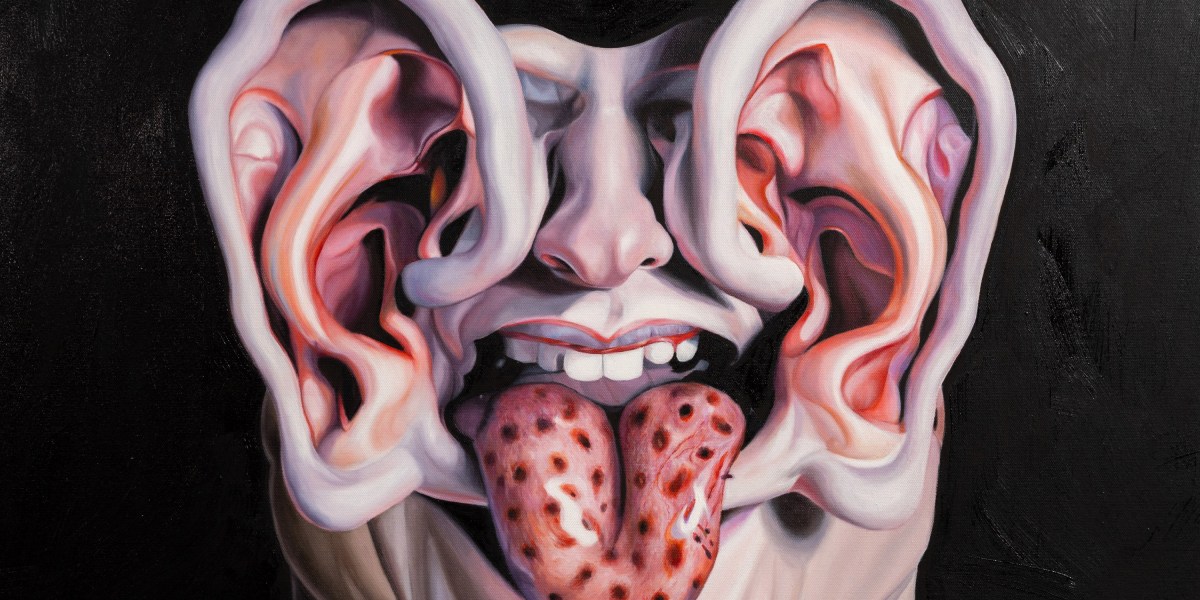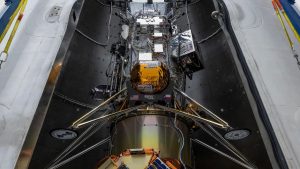A conversation with OpenAI’s first artist in residence

COURTESY OF ALEXANDER REBEN
Reben is OpenAI’s first artist in residence. Officially, the appointment started in January and lasts three months. But Reben’s relationship with the San Francisco–based AI firm seems casual: “It’s a little fuzzy, because I’m the first, and we’re figuring stuff out. I’m probably going to keep working with them.”
In fact, Reben has been working with OpenAI for years already. Five years ago, he was invited to try out an early version of GPT-3 before it was released to the public. “I got to play around with that quite a bit and made a few artworks,” he says. “They were quite interested in seeing how I could use their systems in different ways. And I was like, cool, I’d love to try something new, obviously. Back then I was mostly making stuff with my own models or using websites like Ganbreeder [a precursor of today’s generative image-making models].”
In 2008, Reben studied math and robotics at MIT’s Media Lab. There he helped create a cardboard robot called Boxie, which inspired the cute robot Baymax in the movie Big Hero 6. He is now director of technology and research at Stochastic Labs, a nonprofit incubator for artists and engineers in Berkeley, California. I spoke to Reben via Zoom about his work, the unresolved tension between art and technology, and the future of human creativity.
Our conversation has been edited for length and clarity.
You’re interested in ways that humans and machines interact. As an AI artist, how would you describe what you do with technology? Is it a tool, a collaborator?
Firstly, I don’t call myself an AI artist. AI is simply another technological tool. If something comes along after AI that interests me, I wouldn’t, like, say, “Oh, I’m only an AI artist.”
Okay. But what is it about these AI tools? Why have you spent your career playing around with this kind of technology?
My research at the Media Lab was all about social robotics, looking at how people and robots come together in different ways. One robot [Boxie] was also a filmmaker. It basically interviewed people, and we found that the robot was making people open up to it and tell it very deep stories. This was pre-Siri, or anything like that. These days people are familiar with the idea of talking to machines. So I’ve always been interested in how humanity and technology co-evolve over time. You know, we are who we are today because of technology.






